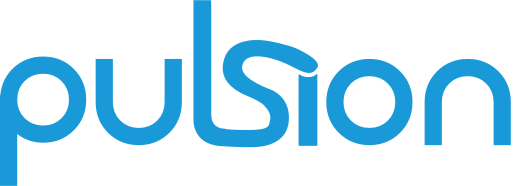You came to the right place if you wonder what questions to ask a software development company.
Thousands of software development companies exist, so where do you even begin, and what do you consider before hiring a team?
You need the right software development partner to ensure a smooth and successful result and ongoing maintenance process.
Let’s guide you to speak to your ideal team and choose the best project manager for your business.
Pulsion Custom Software Development Company: Your Bespoke Project Is Our Passion
Are you interested in a custom software development project to help your services or organisation shine above the rest? Our project management style helps to drive enterprises and individuals toward growth and profit in a unique design and process.
Many software development companies offer custom services and processes. However, our digital strategy consultants will align your needs with the best project manager in a comprehensive interview process before any customisation occurs. You’ll have plenty of time to ask the questions here.
Why Choose Pulsion Software Development?
Some of our previous clients include Innovate U.K., N.H.S. Scotland, and the University of Edinburgh. Our agile methodology, track record, and ongoing support on previous projects
We don’t only aim for your success and growth. Instead, we also look to make your services cost-effective. For example, our 20-year relationship with OneSearch CMS Solution shows our ability to help companies provide services within budget.
Here are more reasons Pulsion should be your developer:
- Hire dedicated developers within a company that has nearly 30 years of experience.
- Use custom software development to fit into your business logic and model.
- Add hybrid mobile app development services to maximise your company’s reach.
Contact us when you know what questions to ask a software development company. Let us help you make an informed decision today that meets every expectation you have of your future project!
Ten Questions to Ask Software Development Companies
Asking the right questions helps you pick the best team and software provider before outsourcing software development.
A software company should answer these questions easily if they work on similar projects, share your business strategy, and understand your project requirements.
1. Does Your Development Company Value My Project?
Your business goals should be the priority of the development company and its dedicated team. It’s also common for many development companies to tackle multiple projects simultaneously.
You need reassurance that your software development partner remains focused. Your company or organisation needs a dedicated developer team to focus on your needs, business goals, and projects.
Ask to meet the team responsible for your project and software to ensure your success is instrumental to the software development company.
2. Is Communication a Priority for Your Software Development Firm?
Communication guarantees clear expectations with a team passionate about software development and your organisation goals.
No client should struggle to reach their software development firm to discuss progress or key elements of the design and development process. The right company treats you like a software development partner, not just a client.
Communication is an ongoing feature available to clients of trusted and reliable software development firms. Ongoing support after project completion is also essential for maintenance services after launch.
3. What Projects Have You Worked On in the Same Industry?
Understanding a software development company’s previous clients and the repeatable process is a great start to knowing whether they are suitable development partners.
Past clients and software projects showcase the abilities of the potential software team. The software development firm should fit your expectations for the entire project with assurance from past experience in the industry.
The right team should be able to provide references or case studies. They should also be able to offer technology and tools that fit your industry or finished product.
4. Does Your Software Company Use an In-House Development Team?
The outsourcing vs. in-house software development debate leads to a critical question about how many developers will tackle your project and from where they work. Outsourcing a software project in a development company means you pay less attention to your development partner.
You want an accountable in-house software partner. On-site teams work on the same page to ensure the project and process run smoothly.
A bigger team of developers is great because it makes the process easier. However, outsourcing projects could fall short of success. To hire dedicated developers on one team means the result is unison and shared goals.
5. What Is Your Development Process for a Software Development Project?
A trusted software development company should be able to tell you about the process behind the design and deployment of your software. The development methodology used describes how the company will processes, management techniques, and client experiences throughout every step.
Two common methodologies include the Waterfall and Agile models.
What Is the Waterfall Method?
A Waterfall model is a sequential approach to the software development lifecycle (SDLC). It’s a linear development method using a logical progression of the SDLC steps with distinct goals for phases.
Each phase can change according to the results as they occur. Here are the steps to inspire more questions.
Waterfall Method Steps
- Requirement Analysis: Collect goals, requirements, and deadlines.
- Analyze: Analyze system specifications to generate models and business logic.
- Design: Outline the requirements on a specifications document.
- Code/Implement: Write the source code from the logic, models, and specifications requirements in the previous steps.
- Test: Run beta tests to recognise faults and provide quality product assurance before deployment.
- Operate/Deploy: The product is functional and launches in a live environment.
- Maintain: Indefinite corrective maintenance is used to release patch updates and new versions.
What Is the Agile Method?
The Agile methodology is more flexible and encourages clients to involve themselves actively throughout the phases and maintenance period.
The method may implement the SCRUM, Kanban, or Dynamic Systems Development Model (DSDM). However, the sprints typically and continually run in the below cycles.
Agile Method Sprint Cycle
- Analyze: Analyze the client’s specifications requirements and business logic.
- Plan: Plan suitable models for the client’s needs and business logic.
- Design: Outline a specifications document.
- Develop: Design software and tools based on the specifications requirements, logic, and models.
- Test: Implement beta testing for fault-finding and quality assurance.
- Deploy: Launch the product in a live environment.
- Review: Use corrective maintenance for patch updates and new versions.
- Launch: Relaunch new versions after each cycle.
6. Do You Provide Quality Control and Security Measures?
Every development company should have a dedicated quality assurance (QA) team to ensure your product continues performing and delivering the best results.
Ask whether the company has a continuous testing model, what they do to offer QA, and what security tools they use.
Pulsion Analytics & Intelligence Tools
We offer continuous business analytics and intelligence for QA, such as:
- Apache Hadoop
- Power BI
- Tableau
Pulsion Security & Encryption Protocols
Furthermore, security and encryption are paramount to your software’s successful deployment. You must ask about the security measures for your project and finished product.
Here’s a quick rundown of our encryption models in custom designs to inspire more questions during your interview:
- SSL/TLS
- JWT
- OAuth
7. Which Software Tools and Technology Do You Provide?
The best software technology is instrumental to your experience and the project’s results. However, this question covers a few follow-up questions.
Let’s help you understand different tools and technologies to ask about before closing the ticket on this query.
7a. Which Tech Stack Does Your Software Development Company Use?
Tech stacks are the programming languages and technologies used in software development, including mobile and multi-platform software development.
Off-the-shelf vs. custom software allows more opportunity if you choose the latter. Let’s see some common tech stacks related to programming languages and frameworks to understand what the development team could offer you.
Pulsion Custom Software
Some of our custom software tech stacks include:
- Programming Languages: Python, Java, JavaScript, C#, and Ruby.
- Frameworks: Jango, React, Ruby on Rails, and Angular.
React Native
Some of our React Native app development tech stacks include:
- Programming Languages: JavaScript, Java, C++, Python, and Objective-C.
- Frameworks: Ui-kitten, React Native Elements, Material UI, Lotti, and Ignite.
Custom Android
Some of our Android app development tech stacks include:
- Programming Languages: Java, Kotlin, C++, Go, C, and JavaScript.
- Frameworks: Flutter, React Native, Native Script, Xamarin, Ionic, and Apache Cordova.
Custom IoS
Some IoS app development tech stacks include:
- Programming Languages: Swift, C, C++, and Objective-C.
- Frameworks: Angular, Kitura, and Vapor.
7b. Can You Offer Multi-Platform Solutions?
ReactJS: A Multi-Platform Solution
At Pulsion, we encourage you to hire ReactJS developers to create multi-platform software. Our JavaScript development environment has a dedicated library for building web and mobile user interfaces that cut costs and offer user-friendly solutions.
Hybrid Solutions
Our hybrid mobile app development services offer another multi-platform solution that utilises Apple and Google Play Store to maximise profits while keeping your costs low. Ask about your software developer’s hybrid solutions to mobile software.
7c.What Software Tools Do You Provide?
Software tools range from integrated development environments (IDEs) to DevOps, testing, and UX/UI platform designs. Knowing which technologies the software company offers will help your expectations about collaboration, user experiences, fault finding, and problem reporting.
Consider whether the company offers the popular tools and technologies related to collaboration.
Popular Communication Platforms
- BueJeans
- Chanty
- Microsoft Teams
- Skype
- Slack
- WebEx
- Zoom
Popular Fire-Sharing Platforms
- Drop Box
- Google Drive
- Hightail
- One Drive
Popular Project Collaboration Platforms
- Asana
- Basecamp
- Jira Software
- Trello
8. What Software Development Pricing Models Do You Use?
A top software development company should be transparent about pricing models from day one. Incorrect payment models could result in losses and unnecessary expense balloons.
A good software development company offers two pricing models: fixed or time and materials.
Fixed Model Pros and Cons
A fixed company pricing model has an upfront payment for the project. The costs are agreed upon before the project starts, and your company approves the model, knowing what to expect.
Pros
- It’s straightforward with upfront costs
- Low-financial risk
- Fixed deadline
- An easy-to-follow project schedule
- No client management is necessary
Cons
- It doesn’t account for unsurprisingly common mid-project changes
- The project feels inflexible and planning is longer
- A higher risk of miscommunication and won’t suit complex projects
Time and Materials Model Pros and Cons
Your company pays for the real time spent on designing and coding the project in the time and materials model. However, it’s a flexible model that could adapt to changing markets as they occur.
Pros
- It has a faster project start
- Works better with dynamic and complex projects
- Adapts quickly to changing markets
- Product quality is easier to achieve by creating quick MVPs to test with real users
- Communication and transparency are instrumental to this model
Cons
- Budgeting is harder
- Deadlines are flexible
- Client involvement is pivotal
9. Who Owns the Intellectual Property Rights to Your Software?
Another key question is to ask about who owns the intellectual property of your finished software. Fortunately, US Copyright Law that the client owns the intellectual rights to software property, even if the software development team wrote the code and programming language.
However, UK Copyright Law is slightly more complicated. Sadly, software source code isn’t entirely protected by intellectual property laws in the UK.
Hence, you have to ask this critical question if using a software development company in the UK. Alternatively, consult with a tech-savvy legal expert.
10. Do You Sign a Non-Disclosure Agreement for Projects?
A top software design company offers an NDA, which may also negate the UK’s lack of intellectual property protection for your source code and finished software.
A software development company non-disclosure agreement (NDA) is a vital legal instrument to protect both parties. You might share invaluable and vulnerable company information during the process.
Your company database may be at risk if you don’t sign a software development NDA. Ultimately, the NDA will protect your data and software relevant to your company’s critical information and source code.
Summing Up the Questions to Ask a Software Development Company
Prevent losses, poor communication, and a lack of shared goals by asking the right questions in an interview with a software company. We believe no question is beyond the scope of your expectations, so use follow-up questions to ensure we have clear expectations of your business needs.
Contact us today to make an appointment with one of our dedicated developers. Our team also includes our founder and co-founder, John and Lorraine McGuire, who share a passion for meeting their client’s needs. We welcome questions you have about the software development process best suited to you.




